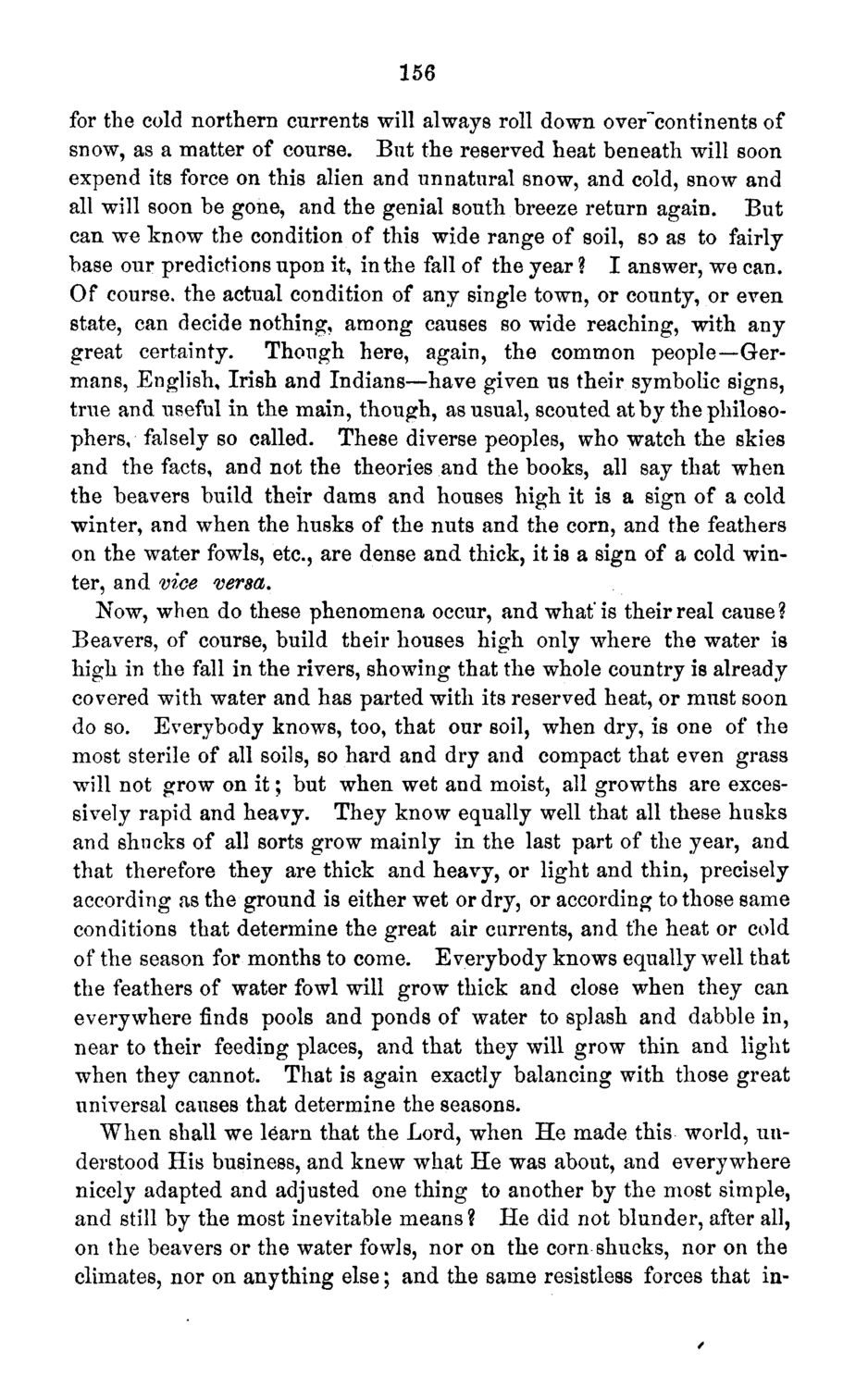| |
| |
Caption: Board of Trustees Minutes - 1871
This is a reduced-resolution page image for fast online browsing.

EXTRACTED TEXT FROM PAGE:
156 for the cold northern currents will always roll down over~continents of snow, as a matter of course. But the reserved heat beneath will soon expend its force on this alien and unnatural snow, and cold, snow and all will soon be gone, and the genial south breeze return again. But can we know the condition of this wide range of soil, so as to fairly base our predictions upon it, in the fall of the year ? I answer, we can. Of course, the actual condition of any single town, or county, or even state, can decide nothing, among causes so wide reaching, with any great certainty. Though here, again, the common people—Germans, English, Irish and Indians—have given us their symbolic signs, true and useful in the main, though, as usual, scouted at by the philosophers, falsely so called. These diverse peoples, who watch the skies and the facts, and not the theories and the books, all say that when the beavers build their dams and houses high it is a sign of a cold winter, and when the husks of the nuts and the corn, and the feathers on the water fowls, etc., are dense and thick, it is a sign of a cold winter, and vice versa. Now, when do these phenomena occur, and what'is their real cause? Beavers, of course, build their houses high only where the water is high in the fall in the rivers, showing that the whole country is already covered with water and has parted with its reserved heat, or must soon do so. Everybody knows, too, that our soil, when dry, is one of the most sterile of all soils, so hard and dry and compact that even grass will not grow on i t ; but when wet and moist, all growths are excessively rapid and heavy. They know equally well that all these husks and shucks of all sorts grow mainly in the last part of the year, and that therefore they are thick and heavy, or light and thin, precisely according as the ground is either wet or dry, or according to those same conditions that determine the great air currents, and the heat or cold of the season for months to come. Everybody knows equally well that the feathers of water fowl will grow thick and close when they can everywhere finds pools and ponds of water to splash and dabble in, near to their feeding places, and that they will grow thin and light when they cannot. That is again exactly balancing with those great universal causes that determine the seasons. When shall we learn that the Lord, when He made this world, understood His business, and knew what He was about, and everywhere nicely adapted and adjusted one thing to another by the most simple, and still by the most inevitable means ? He did not blunder, after all, on the beavers or the water fowls, nor on the corn shucks, nor on the climates, nor on anything else; and the same resistless forces that in-
| |